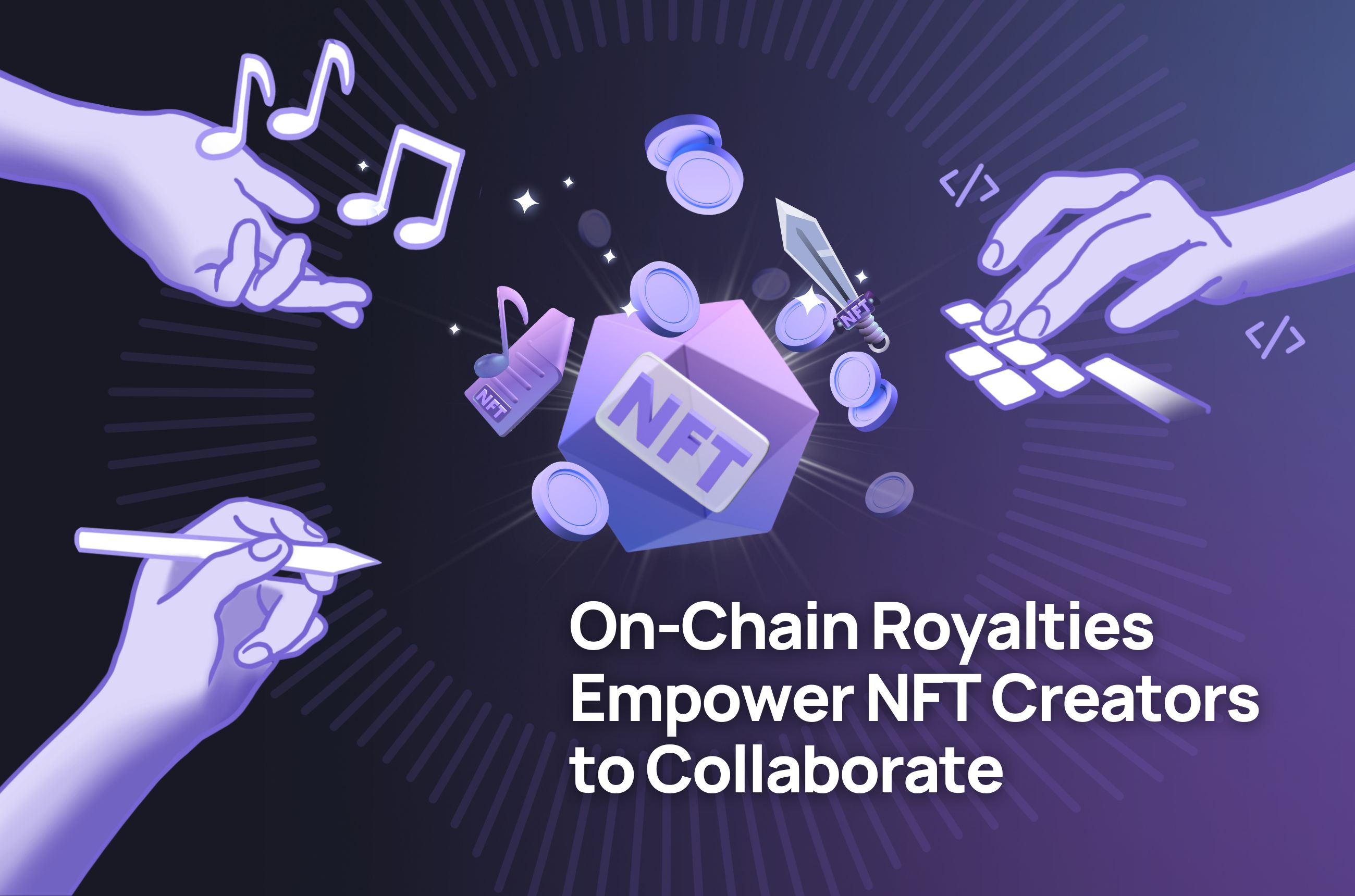

A recent Cointelegraph Interview with Enjin Blockchain ecosystem members proposed how blockchains with NFT royalties built at the protocol level would solve creators’ problem of securing NFT royalties.
…NFT-focused blockchain platform Enjin released a blockchain mainnet with royalty enforcement embedded in the blockchain’s foundational code.
- Cointelegraph
Enjin Blockchain offers creators the solution that they have been waiting for with on-chain royalties built at the protocol level.
Anytime an NFT is traded within the Enjin ecosystem, whether on NFT.io (Enjin’s premier NFT marketplace) or in-game markets, royalties will apply.
With royalties secure, creators freely explore new collaborative business models.
.jpg)
Picture a gaming multiverse with in-game digital assets and numerous Web3 games working together:
Players can use their items across several titles, enhancing the items’ sense of utility. Meanwhile, game developers use gaming multiverse items to attract more player markets. This results in more game transactions and developer royalties.
The win-win model extends beyond games and also benefits individual NFT creators.
Creators discover additional utility for their work, beyond it being a mere profile picture or high-quality art. For instance, a specific NFT can provide a boost to a player's in-game statistics, but only if the player holds that particular NFT.
The following sections highlight these collaborations across the Enjin ecosystem:
Axiomech is vehicular combat game, powered-by Enjin Blockchain.
From its initial release, the game has boasted of interoperable NFTs from the Enjin ecosystem.
Players holding The Multiverse NFTs or selected community-created NFTs receive in-game discounts and bonuses.
%20(1)%20(1).gif)
None of this would be possible without the proper tools and infrastructure. Enjin provides game developers with an end to end solution: from in-game minting tech to marketplaces.
Once the community NFTs land in the Enjin Wallet, a holder can choose to use these however: storing, trading, or loading them up in a game.
On the creator side, artists find it thrilling to have utility added onto their NFTs.
These in-game bonuses come at no cost and effort to the creators, resulting into quick co-marketing campaigns.
Fermus is a well-known music NFT creator.
As he played The Etherscape (an Enjin Blockchain-powered game) for the first time, he realized that there was no background music. Upon battling his way through a dungeon, an old tune started playing in his head.
Fermus immediately composed the melody and contacted the game's developer. The two agreed to collaborate and integrate the music into The Etherscape.
While players do not need to hold the music NFTs to hear Fermus' music in-game, those who purchase the NFTs receive special in-game titles. Read more about it here.
.jpg)
The music NFTs advertise The Etherscape game to the former’s holders. Additionally, the game's players are exposed to the music and are directed to Fermus' extensive collection of NFT music creations on NFT.io
This collaboration has been very promising, resulting in nearly 1,000 Beam claims across the entire The Etherscape NFT Melodies.
As part of future plans, the NFT music creator has hinted at in-game drops of NFT music. This approach would make obtaining the NFTs more challenging, while also promoting exciting and rewarding game events.
The tools for building Web3 games and creating NFTs have never been better.
Creators within the Enjin ecosystem, who are guaranteed of receiving royalties, have recognized the potential of collaborative models and have already started using them to onboard more players and NFT holders.